Conventional agriculture as we know it today is far from perfect, but it has contributed significantly to feeding the world.
It has been forced to maximise output to produce at minimum cost to survive for the past number of decades. In this type of pressured scenario, nature was not seen as a major priority.
The freeing up of international trade forced agriculture to be efficient for its survival. This has continuously forced intensification in all agricultural sectors, with the requirement to produce as much as possible at the lowest unit cost.
Pressures around trade
Agricultural trade systems are not just a measure of relative efficiency. Food trade is often highly politicised to drive prices in one direction or another.
Poorer countries most often export food post-harvest because they do not have adequate storage facilities and this is often used to drive down their prices.
Other countries produce surplus agricultural products which must be exported. This trade is often used to set the market tone for the months ahead.
Any product which must be exported can be exploited in a surplus market
Any product which must be exported can be exploited in a surplus market - drop the price to make the sale. Currency can also have a massive impact here too.
Market pressures and an instinct for survival have driven agriculture in the direction it has traveled in recent decades.
We must remember that agriculture and farming involve many different businesses and business people whose objective is to optimise or maximise income.
But this should not be seen as a weakness in the agricultural system, because every other industry on earth is exposed to the same economic pressures.
What is wrong today
Is there actually something wrong with agriculture today? People are living longer and there is an increasing awareness of the various factors that can make food less safe.
Such factors are controlled increasingly by legislation, which further pressures production costs to ensure that these specifications are met. Food is ultimately safer.
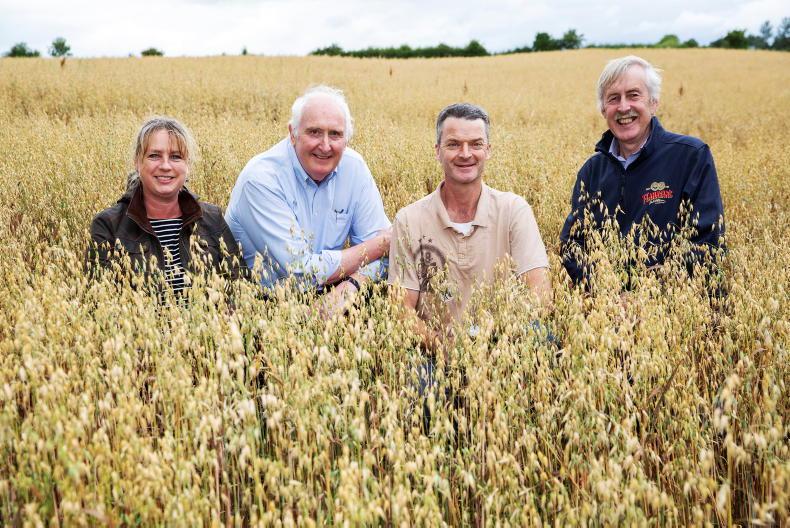
Organic oats had been a major demand product, but current requirements are now being met. In this photo are Gillian Westbrook, Irish Organic Association, John Faulconbridge, Western Seeds, Wales, Mark Harold Barry, farmer and John Flahavan.
Organic farming is portrayed as the panacea in comparison to conventional, but is this correct?
Consumers who choose products produced without artificial pesticides and fertilisers are absolutely entitled to this choice, if it can be produced at the prices that consumers are willing to pay. Organic systems are more labour intensive, but less intensive for other inputs.
The EU is now offering very considerable support to convert more land to organic production. But having more organic product on supermarket shelves has quickly removed the price premium over conventional, on which organic farmers depend.
Several organic food lines carry no premium in the market today and some are even priced below their conventional equivalents.
Policies to reduce production in parts of the globe will only intensify production further in other regions
Pushing organic may seem like a good idea, but markets ultimately prevail in most walks of life. An organic market based on lower prices than conventional does not seem like a sustainable system, even at equal prices.
There is general agreement that the push to organic will mean reduced food production. This is likely to be even more acute where the market does not reward production and where people are just following the support money.
One must also worry that policies to reduce production in parts of the globe will only intensify production further in other regions.
Using natural defences
Perhaps politicians and consumers, who seem to have an adversity to chemicals, do not realise that chemicals are one of the main natural defence mechanisms used by plants.
Not only that, but many of these are likely to be much more toxic than anything that farmers would be licensed to apply. Ironically, little is known about these natural chemicals and what we do not know does not worry us.
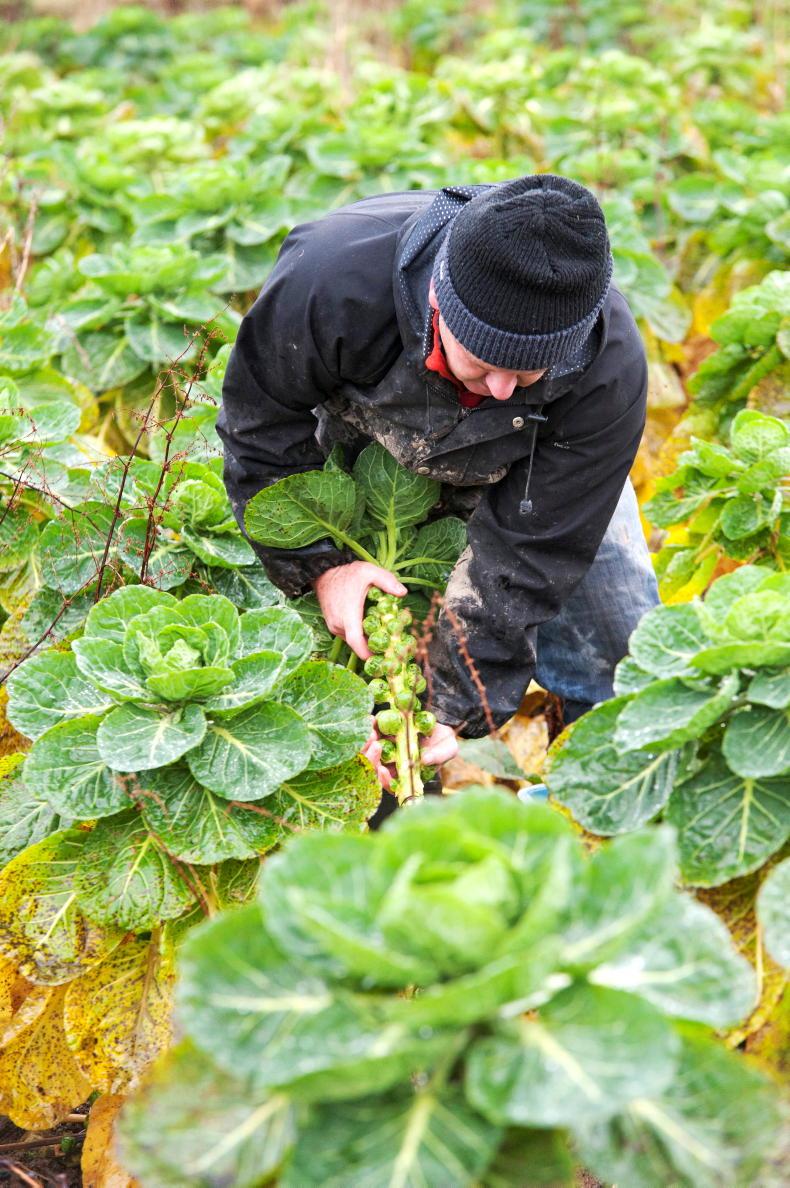
Padraig Fahy of Beechlawn Organic Farm has operated a very successful organic vegetable production business. \ David Ruffles
This is not to suggest that organic is bad or dangerous, but there may be real questions to ask about consumers who only consume organic foods. Most people are likely to use a mix of conventional and organic and this dilutes the consumption.
But even a healthy mix of foods dilutes risk from all chemicals. As we move to rely more on genetics to protect conventional foods, these risks could be magnified.
Farming disrupts nature
Whatever way we want to dress it up, organic and conventional farming systems disrupt nature. Nature is what happens when land is not managed.
If all land went back to nature, only the hunters and gathers could survive. So, society is forced to form a balance between how it thinks it wants the countryside to look and the need for food, both for the home and export markets.
We cannot ignore the fact that much of conventional agriculture has become too intensive - driven solely by profit with little room for things that ensure longer-term sustainability.
That is part of the current debate within the EU. The loading of inputs is too high in some environments and they are causing problems.
We should seek to correct rather than reject this. The non-enforcement of control legislation is only giving way to more restrictive regulations.
These areas need animals to keep their ecosystems alive
We hear weekly about methane emissions from ruminant agriculture and calls to decrease ruminant numbers. But we also hear of the need to restore bigger numbers of ruminants in parts of the wild world where desertification is a major concern and a significant source of carbon depletion.
These areas need animals to keep their ecosystems alive. If we were better able to have an informed debate on all these serious issues, we might form a more balanced perspective to help alter the climate trajectory.
Nature is not gentle
Many people have a romantic view of agriculture and of nature. However, nature is not gentle and agriculture is always a battle against nature - it is the preference for one plant over another.
The checkered landscape we see around us in Ireland is not natural - the hedges were put there by farmers.
Nature is not necessarily healthier either. Plants such as ragworth, organisms such as ergot and the myriad of microorganisms that threaten animal and human health exist in nature.
Increased biodiversity may help reduce some of these problems, but it will not eliminate them. The agriculture of a century ago would not be able to support the world’s eight billion population today without intensification and technological developments.
In this scenario, who would be the ones that would not exist today if global population was being controlled by famine and pestilence?
An ideal agriculture
Agriculture can improve. Soil health is an important tool for our environment across all types of farming and land use systems. Healthy soils should help decrease the intensity of input use, especially for pest, weed and disease control.
It could also decrease nitrogen requirement, while achieving higher output. Getting more out while putting less in is the essence of improved efficiency and we have been going in the opposite direction for years.
Agriculture has lost an amount of its biodiverse heritage. This was arguably driven by EU policy. Ecologically rich areas were not supported in the past and many were converted to farming to secure an income stream.
If the EU itself had recognised the importance of environment three decades ago, perhaps the European agricultural landscape would look different today.
Given the ongoing growth in global population, it is difficult to see beyond a model of sustainable intensification. This would mean intensively managed areas surrounded by extensively managed areas to provide habitats for increased biodiversity.
Useful change
There are many things that farmers can do to bring about useful change, but the rest of the world must face the challenge of feeding an increasing population.
The major challenges are global and it may be of little benefit for the EU to significantly reduce its food production intensity if it must import more from less environmentally conscious areas of the world.
Based on all the requirements of modern society, food systems that reduce the need for movement of inputs or outputs would seem more sustainable.
The circular economy is not modelled on global trade, but there are many big businesses that have a vested interest. Bring back the seasonality of nature to local markets to enable consumers to appreciate the real value of food.
Conventional agriculture as we know it today is far from perfect, but it has contributed significantly to feeding the world.
It has been forced to maximise output to produce at minimum cost to survive for the past number of decades. In this type of pressured scenario, nature was not seen as a major priority.
The freeing up of international trade forced agriculture to be efficient for its survival. This has continuously forced intensification in all agricultural sectors, with the requirement to produce as much as possible at the lowest unit cost.
Pressures around trade
Agricultural trade systems are not just a measure of relative efficiency. Food trade is often highly politicised to drive prices in one direction or another.
Poorer countries most often export food post-harvest because they do not have adequate storage facilities and this is often used to drive down their prices.
Other countries produce surplus agricultural products which must be exported. This trade is often used to set the market tone for the months ahead.
Any product which must be exported can be exploited in a surplus market
Any product which must be exported can be exploited in a surplus market - drop the price to make the sale. Currency can also have a massive impact here too.
Market pressures and an instinct for survival have driven agriculture in the direction it has traveled in recent decades.
We must remember that agriculture and farming involve many different businesses and business people whose objective is to optimise or maximise income.
But this should not be seen as a weakness in the agricultural system, because every other industry on earth is exposed to the same economic pressures.
What is wrong today
Is there actually something wrong with agriculture today? People are living longer and there is an increasing awareness of the various factors that can make food less safe.
Such factors are controlled increasingly by legislation, which further pressures production costs to ensure that these specifications are met. Food is ultimately safer.

Organic oats had been a major demand product, but current requirements are now being met. In this photo are Gillian Westbrook, Irish Organic Association, John Faulconbridge, Western Seeds, Wales, Mark Harold Barry, farmer and John Flahavan.
Organic farming is portrayed as the panacea in comparison to conventional, but is this correct?
Consumers who choose products produced without artificial pesticides and fertilisers are absolutely entitled to this choice, if it can be produced at the prices that consumers are willing to pay. Organic systems are more labour intensive, but less intensive for other inputs.
The EU is now offering very considerable support to convert more land to organic production. But having more organic product on supermarket shelves has quickly removed the price premium over conventional, on which organic farmers depend.
Several organic food lines carry no premium in the market today and some are even priced below their conventional equivalents.
Policies to reduce production in parts of the globe will only intensify production further in other regions
Pushing organic may seem like a good idea, but markets ultimately prevail in most walks of life. An organic market based on lower prices than conventional does not seem like a sustainable system, even at equal prices.
There is general agreement that the push to organic will mean reduced food production. This is likely to be even more acute where the market does not reward production and where people are just following the support money.
One must also worry that policies to reduce production in parts of the globe will only intensify production further in other regions.
Using natural defences
Perhaps politicians and consumers, who seem to have an adversity to chemicals, do not realise that chemicals are one of the main natural defence mechanisms used by plants.
Not only that, but many of these are likely to be much more toxic than anything that farmers would be licensed to apply. Ironically, little is known about these natural chemicals and what we do not know does not worry us.

Padraig Fahy of Beechlawn Organic Farm has operated a very successful organic vegetable production business. \ David Ruffles
This is not to suggest that organic is bad or dangerous, but there may be real questions to ask about consumers who only consume organic foods. Most people are likely to use a mix of conventional and organic and this dilutes the consumption.
But even a healthy mix of foods dilutes risk from all chemicals. As we move to rely more on genetics to protect conventional foods, these risks could be magnified.
Farming disrupts nature
Whatever way we want to dress it up, organic and conventional farming systems disrupt nature. Nature is what happens when land is not managed.
If all land went back to nature, only the hunters and gathers could survive. So, society is forced to form a balance between how it thinks it wants the countryside to look and the need for food, both for the home and export markets.
We cannot ignore the fact that much of conventional agriculture has become too intensive - driven solely by profit with little room for things that ensure longer-term sustainability.
That is part of the current debate within the EU. The loading of inputs is too high in some environments and they are causing problems.
We should seek to correct rather than reject this. The non-enforcement of control legislation is only giving way to more restrictive regulations.
These areas need animals to keep their ecosystems alive
We hear weekly about methane emissions from ruminant agriculture and calls to decrease ruminant numbers. But we also hear of the need to restore bigger numbers of ruminants in parts of the wild world where desertification is a major concern and a significant source of carbon depletion.
These areas need animals to keep their ecosystems alive. If we were better able to have an informed debate on all these serious issues, we might form a more balanced perspective to help alter the climate trajectory.
Nature is not gentle
Many people have a romantic view of agriculture and of nature. However, nature is not gentle and agriculture is always a battle against nature - it is the preference for one plant over another.
The checkered landscape we see around us in Ireland is not natural - the hedges were put there by farmers.
Nature is not necessarily healthier either. Plants such as ragworth, organisms such as ergot and the myriad of microorganisms that threaten animal and human health exist in nature.
Increased biodiversity may help reduce some of these problems, but it will not eliminate them. The agriculture of a century ago would not be able to support the world’s eight billion population today without intensification and technological developments.
In this scenario, who would be the ones that would not exist today if global population was being controlled by famine and pestilence?
An ideal agriculture
Agriculture can improve. Soil health is an important tool for our environment across all types of farming and land use systems. Healthy soils should help decrease the intensity of input use, especially for pest, weed and disease control.
It could also decrease nitrogen requirement, while achieving higher output. Getting more out while putting less in is the essence of improved efficiency and we have been going in the opposite direction for years.
Agriculture has lost an amount of its biodiverse heritage. This was arguably driven by EU policy. Ecologically rich areas were not supported in the past and many were converted to farming to secure an income stream.
If the EU itself had recognised the importance of environment three decades ago, perhaps the European agricultural landscape would look different today.
Given the ongoing growth in global population, it is difficult to see beyond a model of sustainable intensification. This would mean intensively managed areas surrounded by extensively managed areas to provide habitats for increased biodiversity.
Useful change
There are many things that farmers can do to bring about useful change, but the rest of the world must face the challenge of feeding an increasing population.
The major challenges are global and it may be of little benefit for the EU to significantly reduce its food production intensity if it must import more from less environmentally conscious areas of the world.
Based on all the requirements of modern society, food systems that reduce the need for movement of inputs or outputs would seem more sustainable.
The circular economy is not modelled on global trade, but there are many big businesses that have a vested interest. Bring back the seasonality of nature to local markets to enable consumers to appreciate the real value of food.









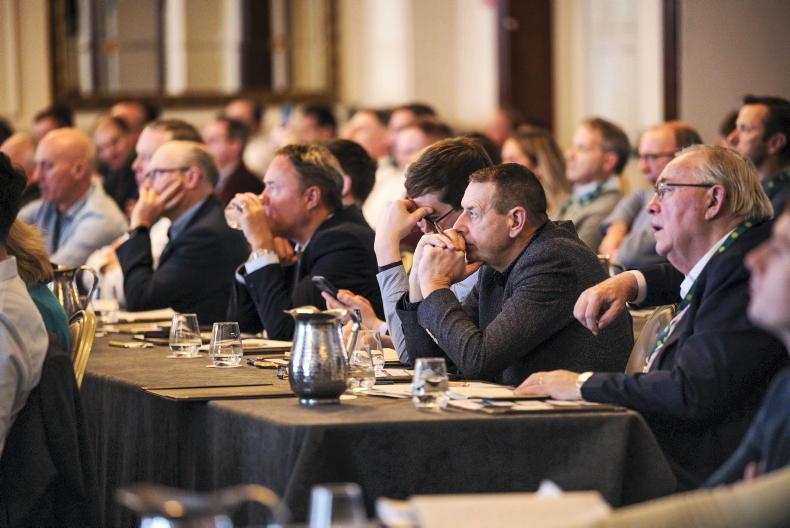
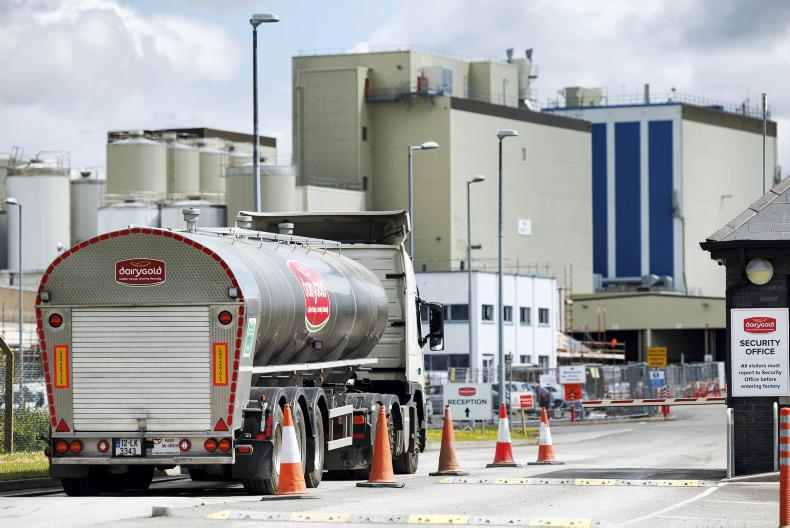
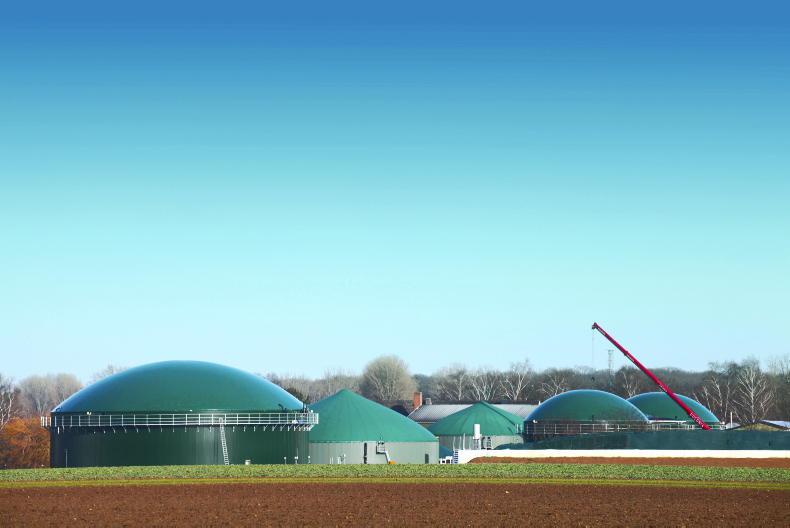
SHARING OPTIONS